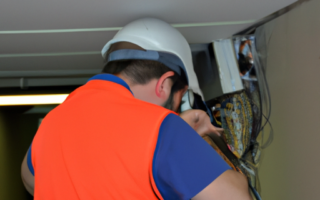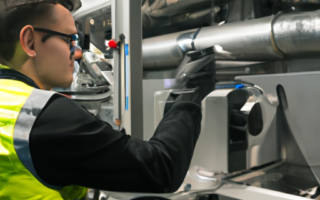The Importance of Regular Inspections: Maximizing Efficiency and Minimizing Hazards
Regular inspections are a crucial part of maintaining the efficiency and safety of a business. By conducting routine inspections, businesses can identify and address any issues or risks before they escalate, ensuring a smooth operation and minimizing potential hazards.
One of the main benefits of routine inspections for businesses is the enhanced efficiency they provide. By inspecting equipment, machinery, and work areas regularly, businesses can identify any potential breakdowns or inefficiencies. This allows them to proactively address these issues, preventing costly downtime and ensuring optimal productivity. Additionally, regular inspections can help identify any areas where processes can be improved or streamlined, leading to increased efficiency and cost savings in the long run.
Another significant advantage of routine inspections is the reduction of risks. Inspections help identify potential safety hazards, such as faulty equipment, improper storage of materials, or outdated safety protocols. By addressing these issues promptly, businesses can create a safer work environment for their employees, reducing the likelihood of accidents or injuries. This not only improves the well-being of the workforce but also helps businesses avoid costly liability claims and legal issues.
Routine inspections also contribute to maintaining compliance with industry regulations and standards. Many industries have specific guidelines and requirements that businesses must follow to ensure the safety and quality of their products or services. By regularly inspecting their operations, businesses can ensure that they remain in compliance with these regulations, avoiding penalties or legal complications that could arise from non-compliance.
In addition to these benefits, routine inspections foster a culture of continuous improvement within a business. By regularly assessing and reassessing their operations, businesses can identify areas for improvement and implement necessary changes. This not only helps them stay ahead of the competition but also promotes innovation and growth.
In conclusion, regular inspections play a crucial role in maximizing efficiency and minimizing hazards for businesses. By conducting routine inspections, businesses can enhance their efficiency, reduce risks, ensure compliance, and foster a culture of improvement. Investing time and resources into regular inspections is therefore essential for businesses looking to thrive in today’s competitive landscape.
How Routine Inspections Can Benefit Businesses: Streamlining Operations and Mitigating Risks
Routine inspections play a crucial role in the success and sustainability of businesses across industries. Not only do they ensure compliance with regulations and standards, but they also offer numerous benefits for enhancing efficiency and reducing risks.
One of the key benefits of routine inspections is streamlining operations. By regularly examining various aspects of a business, from equipment and facilities to processes and procedures, businesses can identify and address any inefficiencies or bottlenecks. Inspections provide an opportunity to detect and resolve issues before they escalate, helping to optimize workflows and improve overall productivity.
Moreover, routine inspections help businesses mitigate risks. They enable companies to proactively assess potential hazards and vulnerabilities, ensuring a safe and secure working environment for employees and customers. Identifying and rectifying risks early on not only minimizes the likelihood of accidents or incidents but also protects a company’s reputation, reducing the potential for legal liabilities and financial losses.
Another advantage of routine inspections is the opportunity for continuous improvement. By conducting regular check-ups, businesses can monitor their performance and identify areas for enhancement. Inspections provide valuable feedback and insights, allowing organizations to implement necessary changes and upgrades. This iterative process of evaluation and improvement fosters innovation and adaptability, enabling businesses to stay competitive in an ever-evolving market.
Furthermore, routine inspections can contribute to better customer satisfaction. By ensuring that products and services meet quality standards and are delivered in a timely manner, businesses can enhance customer trust and loyalty. Inspections help maintain consistency and reliability, boosting customer satisfaction and ultimately increasing customer retention and referrals.
In conclusion, routine inspections are a vital tool for businesses to streamline operations, mitigate risks, foster continuous improvement, and enhance customer satisfaction. By investing in regular inspections, companies can proactively identify and address issues, ensuring long-term success and sustainability. Therefore, it is essential for businesses across industries to prioritize and allocate resources for routine inspections as part of their operational strategies.



